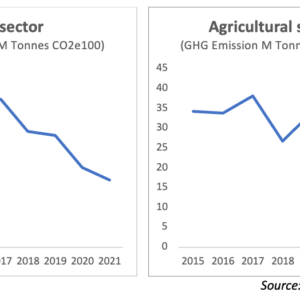According to the Public Finance for Energy Database, Japan’s finance from major government institutions for fossil fuels totaled US$5.75 billion in 2021 (Figure 1). Figure 2, which shows the amount of public money spent on fossil fuels and clean energies from 2015 to 2021, shows that Japan has spent an average of 6-7 times more...
Author: Takeda Kazuya (Takeda Kazuya)
Post
Current Areas Where Indigenous People in Japan Have Been Resettled Have Not Been Greatly Affected by Climate Change
The Ainu people are the only officially recognized indigenous people in Japan (Ministry of Foreign Affairs, 2014). When we say that the Ainu are an indigenous people of Japan, we mean that Japan, as a modern nation, has exerted domination over the Ainu people and that the Japanese government bears responsibility for that domination (Kitahara...
Post
Japan’s Agriculture Sector Contributed .47% of Global Agricultural Emissions in 2021
The third-largest economy in the world, Japan accounts for 4.1% of the global GDP (IMF, 2022). And since 2015, its GHG emissions have been steadily declining, reaching 1.21 billion tonnes of CO2e100 in 2021, or 2.2% of the world, or half of the GDP share. In 2021, the agriculture sector in Japan produced 26.8M CO2e100...




